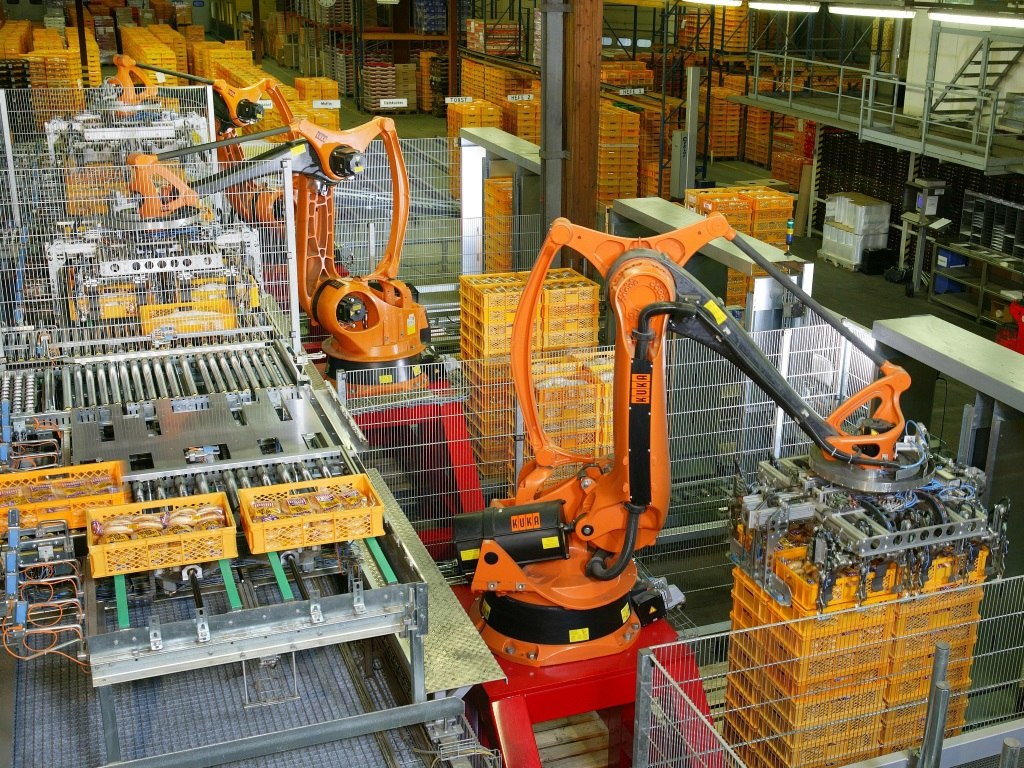
Canadian manufacturers lag in the adoption of Industry 4.0 technologies
by CM Staff

SMEs see value in advanced manufacturing technology but have concerns

PHOTO: KUKA Roboter GmbH, Bachmann [Public domain], via Wikimedia Commons
TORONTO — Manufacturers around the world are adopting Industry 4.0 technologies and integrating digital technologies that optimize their processes. But Canadian companies have not been quick to adopt advanced technologies, according to the 2020 Advanced Manufacturing survey of mostly small and medium-sized manufacturers.
Industry 4.0 focuses on automation, interconnectivity, machine learning and the analysis of real time data that involves the Internet of Things (IoT), the cloud, advanced computing and artificial intelligence.
The survey for accounting, tax and advisory firm BDO Canada LLP by PLANT magazine/Annex Business Media looked at how 251 owners and senior executives view these technologies and probed their level of adoption. Many see the value of advanced technologies but are wary of costs and return on investment as they continue to apply more traditional manufacturing methods. They’re also concerned that people with the skills necessary to make the most of digital technologies and networks are in too short supply. Challenges include data being complicated and requiring special knowledge, increased cybersecurity risks, and the massive investment needed to replace machinery.
Most executives (87%) recognize emerging technologies allow companies to compete globally.
“They realize that Canadian manufacturers are competing with companies around the world. This survey echoes our experience. And almost 80% see the Industrial Internet of Things as a business growth opportunity,” said Mike Gillespie, partner, Manufacturing Leader, BDO Canada. “64% of respondents say manufacturers with smaller operations have more to gain from Industry 4.0. This is welcome news. The first step to change is acknowledging the need to change.”
But just 24% of executives are currently applying the Industrial Internet of Things (IIoT), 36% are planning or evaluating, but 24% aren’t familiar with the technology’s capabilities and 15% stated IIoT is not applicable to their operations.
They see the top IIoT applications as: improving efficiency and productivity (33%); providing more visibility into production processes (23%); improving maintenance functions (22%); tracking materials and shop floor assets (20%); and pulling together business data from shop floor to top floor (20%).
Challenges encountered while implementing technology strategies include resistance to change (51%), lack of skilled talent (48%), funding (46%) and integrating with legacy technology (36%).
Most companies are using traditional means to compile information. 70% are using spreadsheets such as Excel for production and material planning, and 46% use accounting packages while 43% generate manual paperwork. Integrating ERP for the supply chain was cited by 35% of respondents and MRP by 26%. Only 14% are employing sensors to capture big data.
Research firm RK Insights in Toronto conducted the survey through July and August 2019 for PLANT Magazine, in partnership with BDO Canada. The margin of error is +/- 5%, 18 times out of 20.
Most of the companies are small: 52% have fewer than 50 employees and 47% of respondents hold controlling or minority ownership, or have partners. Average annual revenue of all respondents is $65.7 million, but 52% take in less than $10 million.
Download the survey results and executive roundtable report from
https://www.plant.ca/2020-advanced-manufacturing-report/.